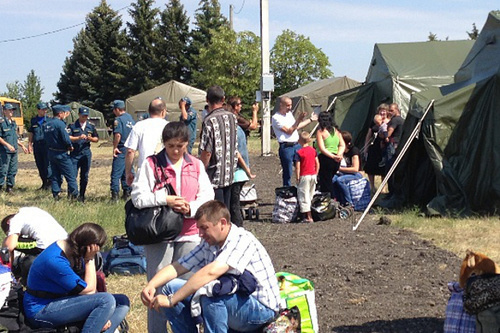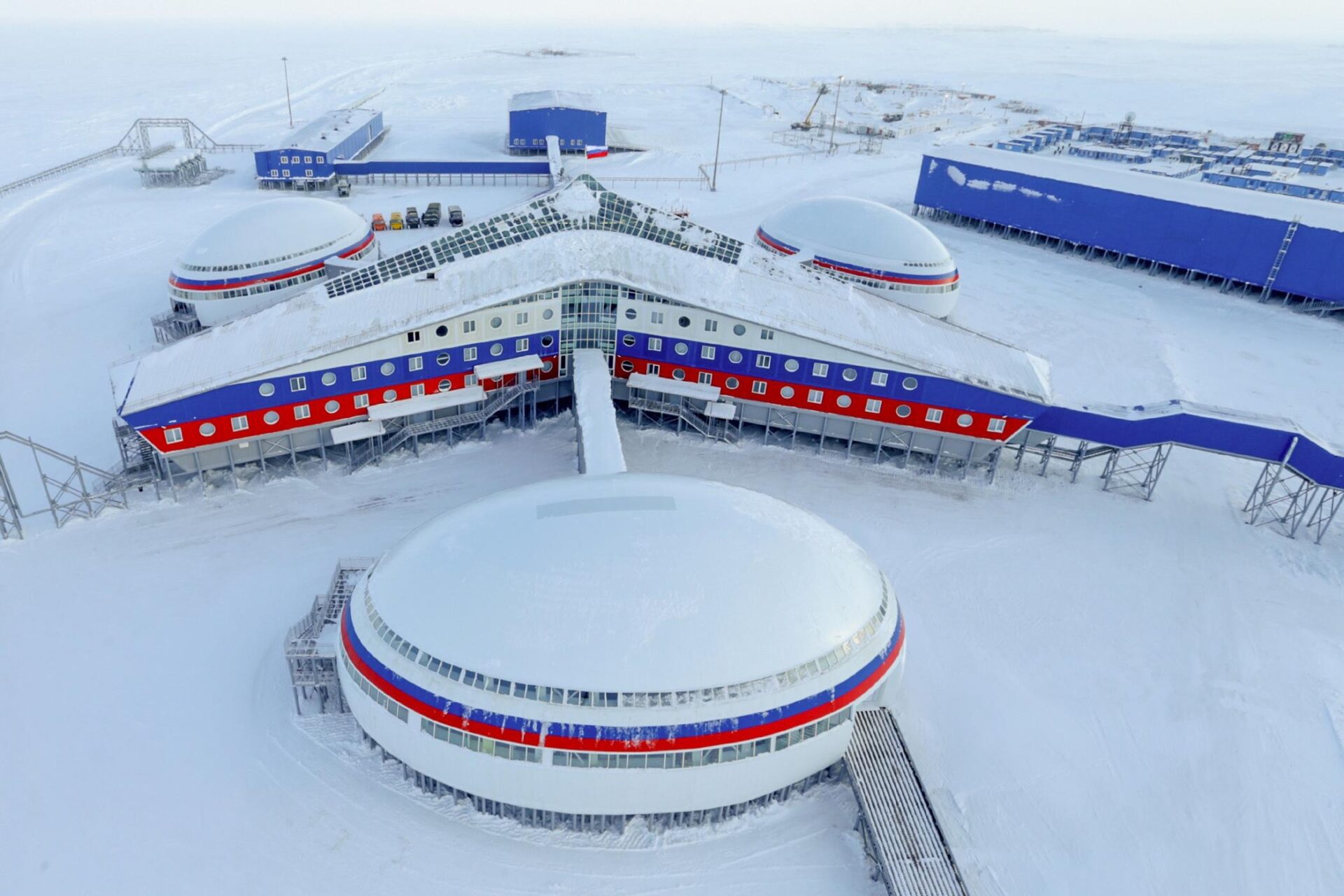
Domestic Pressure on Putin to Intervene in Ukraine Mounts
Domestic Pressure on Putin to Intervene in Ukraine Mounts
While the dominant narrative in the West is that President Vladimir Putin is personally responsible for the crisis in Ukraine’s eastern region of Donbas and seeks to use it to Russia’s advantage, such a Manichean view disguises the nuances and complexities surrounding the issue. One often overlooked dimension of this is domestic Russian support for an intervention in the conflict. For example, on June 11, a public demonstration was held at Moscow’s Suvarovsky Square, in favor of Russia’s military intervening in the crisis in Ukraine. The demonstration was billed simply as one “for Donbas” and was relatively “spontaneous.” It was organized through the Internet and drew around 1,400 participants (Ridus, June 12).
Indeed, the Internet is playing a major role in boosting Russians’ support for assisting brotherly Slavs in the conflict playing out in eastern Ukraine. One such effort is being made through the Russian social networking site VKontakte, where the group “Patriots of Russia–Union of Slavs” has over 64,000 members (VKontakte, June 24). Thus, there is substantial sentiment in favor of helping Ukraine, if not pushing the Russian Federation to intervene more decisively, including by military means.
The domestic pressure on Putin to act is only going to increase as a result of Russian news reports about floods of refugees pouring over the border from Ukraine. Russia’s Federal Migration Service (FMS) claims that there are more than 500,000 refugees from Ukraine currently residing in the Rostov Oblast alone. Following a presentation on the problem, the head of the FMS, Konstantin Romadonovsky, said that “Belgorod, Rostov, Voronezh, and Kursk oblasts are the border regions where Russia now has many problems, because of the Ukrainians who have left their country” (ITAR-TASS, June 24). Even if this estimated number of refugees seems high, there is no doubt that the refugee crisis is real for Russia. Other reports claim that “in the past two weeks, more than 109,000 Ukrainian citizens and 61,000 Russian citizens” have come to Russia, because of the fighting in Ukraine (Izvestiya, June 19). Although Ukrainian President Petro Poroshenko has declared a ceasefire and the separatist leaders have claimed they accepted it, sporadic violence has not ceased (see EDM, June 24). As a result of this news, public pressure is growing in Russia for the government to do something regarding the ongoing conflict in Donbas.
The United Nations has also taken an interest in the unfolding refugee crisis in southern Russia, sending UN’s Special Representative for Refugees Baisa Vak-Voia to visit some of the camps in the Rostov Oblast. Vak-Voia reported a large number of children among the displaced; the special Dimtriadovskii camp outside of Taganrog has been established exclusively for mothers and children (Vesti, June 22). Images of suffering children are particularly powerful, which again increases the domestic pressure on Putin to intervene to stop the fighting across the border.
Refugees from Ukraine are certainly receiving a warmer welcome than most migrants in Russia. Romadonovskii announced that refugees from Ukraine may apply for Russian citizenship and the Russian government is offering compensation for the new arrivals to disperse around Russia (see EDM, June 27). In particular, the authorities are encouraging newly arrived Slavic migrants to move to the Far East and Baikal regions, with compensation of between 120,000 to 240,000 rubles ($3,500 to $7,100) (Lenta.ru, June 19). Thus, the Russian government appears, in part, to be using the refugees from Ukraine to reverse what it claims to be the displacement of ethnic Slavs in the Russian Far East by Chinese immigrants. Moscow has long considered migration a national security problem in Asian Russia, but because many of the refugees from Ukraine are ethnic Russians, they are not seen as a security problem.
Indeed, following the Ukrainian government announcing that it was going to step up its efforts to close the border with Russia, Alexei Zhuvalev, the leader of Russia’s nationalist Rodina party (currently with no seats in the national legislature), introduced a bill in the State Duma on June 15 to open a humanitarian corridor to Donbas. Although conventional practice is for both sides to be consulted in the establishment of such a corridor, Russian military analyst Viktor Myasnikov dismissed this by noting that the Russian parliament had already authorized Putin to use force if necessary to protect Russian lives in Ukraine. And still another option would be for the president to use Russian air superiority to establish a no-fly zone or even actively bombard the region to force back the Ukrainian armed forces (Svobodapress, June 16).
However, instead of pursuing the military option, President Putin requested on June 24 that the Russian parliament revoke his ability to use force in the conflict in Ukraine. Naturally, that request was met with disappointment by the leaders of the “people’s assemblies” in the Donetsk and Luhansk provinces (RIA Novosti, June 24). Nonetheless, Putin chose this tactic to appear to the West as if he is earnestly trying to resolve the conflict peacefully. Such a signal will allow the Kremlin to avoid blame for the ongoing conflict, while domestic sentiment over events in Ukraine will ensure that there remains a groundswell of support for Russia’s sudden military moves, should Putin deem them necessary.


